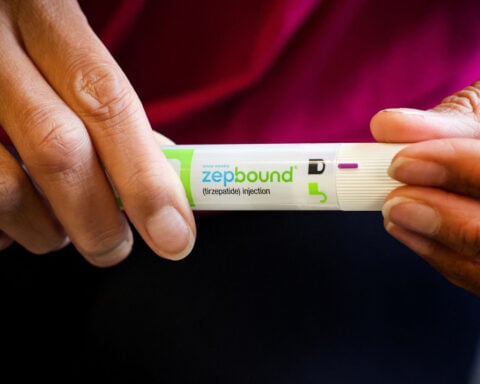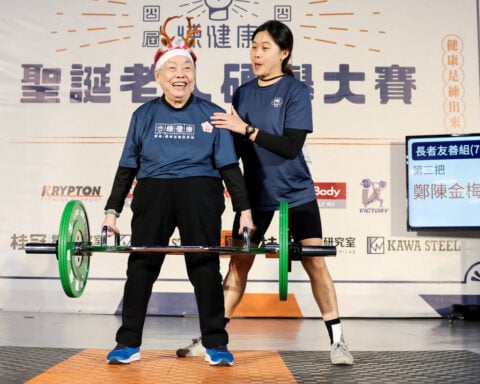(CNN) — Gerontologist Jay Olshansky is used to backlash about his views on human longevity. Decades ago he and his coauthors predicted children, on average, would live to only age 85 — only 1% to 5% might survive until their 100th birthday.
Many recoiled from his splash of cold reality, Olshansky said, having grown accustomed to predictions that 50% of babies would live to 100.
“In 1990, we predicted increases in life expectancy would slow down, and the effects of medical interventions, which we call Band-Aids, would have less and less of an effect on life expectancy,” said Olshansky, a professor of epidemiology and biostatistics in the School of Public Health at the University of Illinois in Chicago.
“A lot of people disagreed with us. They said, ‘No, no, NO!’ Advances in medical and life-extending technologies will accelerate and will drag life expectancy along with it,” he said.
Now, 34 years later, Olshansky says he and his coauthors have proven their point. Their analysis of lifespan data from Australia, France, Hong Kong, Italy, Japan, South Korea, Spain, Sweden, Switzerland and the United States was published Monday in the journal Nature Aging.
Overall, female children born in 2019 in these places have a 5.1% chance of reaching 100 years of age, the study said. There is only a 1.8% chance for males.
“We waited 30 years to test our hypothesis. We have shown the era of rapid increases in human life expectancy has ended, just as we predicted,” Olshansky said.
“Now, I want to make sure that this is interpreted correctly,” he added. “We’re still gaining life expectancy, but it’s at an increasingly slower pace than in previous decades.”
Olshansky spoke to CNN about his analysis of longevity data.
This conversation has been lightly edited and condensed for clarity.
CNN: Many people say it’s a given humans will soon be able to live to 120, even 150 years of age. How do you reconcile your findings with those predictions?
Olshansky: Those are all made up numbers. There is no way to empirically verify claims of radical life extension that are being made by folks in this industry.
In our paper we say, “Please, stop exaggerating. These are untestable scientific hypotheses.” Only one woman has made it to her 122nd birthday and that’s it.
(That woman, Jeanne Calment, was born in 1875 in Arles, France, at a time when life expectancy was nearly 45 years. She died 122 years and 164 days later in 1997, despite a life of smoking and drinking port.)
Aging is currently immutable — it’s the decline of your cells, tissues, organs and organ systems that currently can’t be stopped. It is a byproduct of operating the machinery of life.
If you expose enough people in a population to the immutable force of aging, you run up against a roadblock that makes it difficult to achieve further gains in life expectancy, and that’s where we are now. You can continue to make progress against major diseases, but it’s not going to have the life-extending effect that people think — in fact, it will have a diminishing effect.
This is a consequence of success. It is not a consequence of failure. It’s a consequence of allowing people to live long enough to experience the biological process of aging, which now is the dominant risk factor.
The only way we can break through this glass ceiling of longevity is if we slow the biological process of aging.
CNN: During the past 30 years, obesity and associated diseases like type 2 diabetes have become widespread. What role did this play in slowing the march toward longevity?
Olshansky: Yes, we had this rather dramatic rise in obesity in the population, and obesity leads to diabetes, cardiovascular disease, cancer and other conditions. My colleagues and I published a paper in 2005 suggesting this will be the first generation of children to live a shorter lifespan than their parents due to obesity.
In response, medical science has created a broad range of rather remarkable life-extending technologies designed to treat the consequences of obesity, diabetes, heart disease — drugs like statins, antibiotics and vaccines, surgical procedures, devices to detect disease and early treatments for all of these diseases. They work. They have been absolutely remarkable.
The modern era is filled with people living into their 70s, 80s, and a few in their 90s and beyond, almost all of whom are living on time that has been manufactured by medical technology — manufactured time that physicians across the globe have created for us.
The longevity game that we’re playing now is Whac-A-Mole. Each mole represents a different disease, and the older you get, the more moles there are, and the faster they come up.
If you open up older bodies, you will see multiple diseases that exist, any one of which could take out these individuals. And these diseases that are appearing are associated with the underlying process of senescence — aging, the aging of our cells, tissues, organs and organ systems that is immutable.
But let’s say we reverse those diseases, eliminate obesity and smoking, it’s still not going to have much of an impact on life expectancy because many of the negative consequences of having these conditions have already been ameliorated through pharmaceuticals or through surgical procedures of one kind or another.
We would be a whole lot healthier, of course. Health span would improve significantly if we can get off of these medications and get rid of this excess weight and stop smoking and eliminate the exposure to or reduce exposure to sun and eliminate drugs, but that’s not really going to happen in the real world.
CNN: The arguments that humans will live to 150 or more are based on work that’s being done with animals. While it’s true mice are not people, does this work give you hope?
Olshansky: There is reason to be optimistic that a second longevity revolution is approaching. Researchers are succeeding in slowing biological aging in fruit flies, worms, mice and primates, offering humanity a second chance at altering the course of human survival.
That’s what geroscience is. The door is wide open for us to alter the basic biological process of aging. However, some researchers have taken the results of these animal models and have assumed that if you can double or triple the lifespan of a mouse, you can double or triple the lifespan of a human.
I have no doubt that we can extend the lifespan of these shorter-lived species, but there is no evidence that it translates into an equivalent increase in life expectancy for humans. Is it likely to make us live longer? Yes. Do we know by how much? No.
The metric of success should not be lifespan extension. It should be health span extension. This is something we can measure, and this is something we all desire. In fact, I would argue that health span is the most precious commodity on Earth and we are in the business of manufacturing as much of it as we can.
If we don’t find a way to modulate aging and we only use the toolbox that we have now, which is treating one disease at a time, we may not like what we see going forward. We may get incremental improvements in life expectancy, but we may also get an increase in frailty and disability because we’re trading off one set of diseases for another.
Remember, death is a zero sum game. One thing goes down, something else goes up, and the fear is that we’re going to replace cancer and cardiovascular disease with dementia, Alzheimer’s and other serious health challenges that we can’t currently modify. So we have to be careful what we wish for and what we manufacture going forward, because life extension without health extension would be harmful.
The-CNN-Wire
™ & © 2024 Cable News Network, Inc., a Warner Bros. Discovery Company. All rights reserved.

 How to save a fentanyl victim: Key facts about naloxone
How to save a fentanyl victim: Key facts about naloxone
 Eight convicted in France over murder of teacher who showed Prophet caricature
Eight convicted in France over murder of teacher who showed Prophet caricature
 Death toll in German Christmas market car-ramming rises to five, more than 200 injured
Death toll in German Christmas market car-ramming rises to five, more than 200 injured
 Syria's new rulers name foreign minister amid push for international relations
Syria's new rulers name foreign minister amid push for international relations
 Pakistan dismisses US official's warning over missile programme as unfounded
Pakistan dismisses US official's warning over missile programme as unfounded
 Weightlifting Taiwan granny, 90, garners cheers, health benefits at gym
Weightlifting Taiwan granny, 90, garners cheers, health benefits at gym
 Russia's UK embassy denounces G7 loans to Ukraine as 'fraudulent scheme'
Russia's UK embassy denounces G7 loans to Ukraine as 'fraudulent scheme'
 Retailer Party City files for bankruptcy, will wind down 700 stores
Retailer Party City files for bankruptcy, will wind down 700 stores
 Philadelphia 76ers star Joel Embiid working through injuries and mental health struggles
Philadelphia 76ers star Joel Embiid working through injuries and mental health struggles
 Soccer's top players have had enough, as FIFA's new super-sized tournament sparks a revolt
Soccer's top players have had enough, as FIFA's new super-sized tournament sparks a revolt







